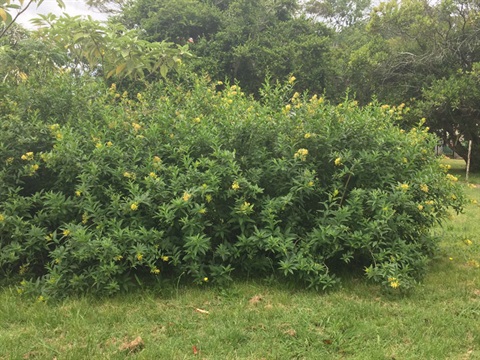Are you harbouring a fugitive in your garden?
Published on 17 December 2021

This summer, doing the gardening may not just be a way to relax and keep your home beautiful, it could also save your children, your pets and prevent a run in with the law.
Kempsey Shire Council are reminding residents that there is a need to control or remove a number of species that are found growing in yards and on land around the Shire.
This weed removal is not due to a local government rule to enforce cleanliness, although it is Council officers who carry out the inspections. Rather actions are necessary to comply with the Australian Government’s Biosecurity Act regarding High Priority Species.
More importantly, many weeds should be removed to protect you from species which could be very harmful to your family, your animals and the environment.
Kempsey Shire Council Weeds Officer, Greg Egan, said that while a lot of publicity is rightly given to Tropical Soda Apple due to the damage it inflicts, there are numerous weeds of concern at present.
“Recently, Council have observed an increase in infestations of plants which are very harmful to health - plants that are poisonous and spread quickly,” said Mr Egan.
“These infestations include plant types that landowners are required by law to prevent and eliminate.”
According to Mr Egan the major concerns at present are Green Cestrum, which is becoming prolific particularly in the West and South Kempsey areas. Another is Mother Of Millions. And Council are also highlighting the need to look out for those weeds which spread incredibly fast like Cockspur Coral Tree, Yellow Bells, Chinese Tallow Tree, along with Aquatic weeds like Salvinia, Water Hyacinth and Frogbit among many others.
“With some of these plants, the Act requires that ‘the land must be kept free’ of them, or the landowner has a duty to ensure the risk is prevented, eliminated or minimised. Council are here to help though, so if you are concerned, please reach out.”
You can learn more about these weeds along with many others which might grow in your environment by looking at the NSW Weedwise page or by downloading the free NSW WeedWise App on your smart phone or by obtaining the free weeds book from Council’s website or Customer Service.